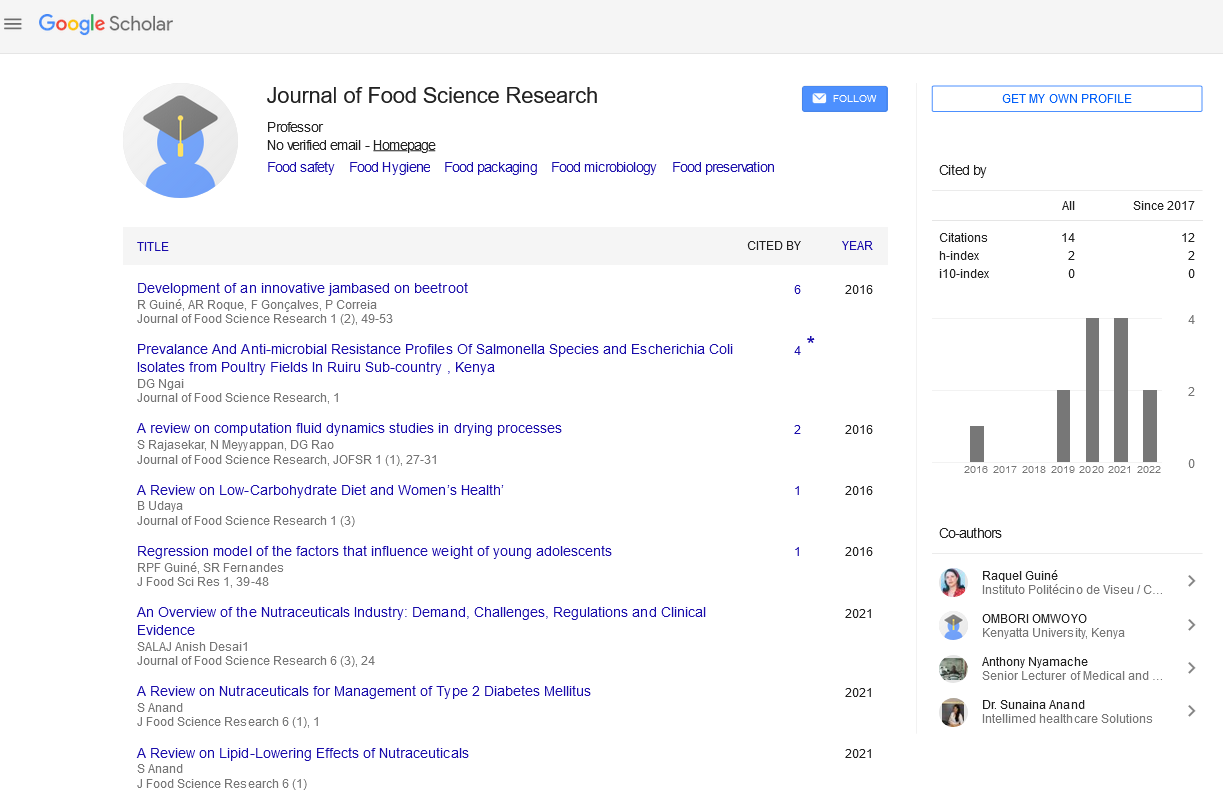Abstract
LYCOPENE AND CVDs: Protective effect of lycopene in cardiovascular disease
Author(s): Sumbal Arif,Nowadays Cardiovascular disease (CVDs) is major cause of mortality rate in the world. Plants and vegetables are good plant sources which are helpful in CVD prevention. Lower rates of mortality from cardiovascular disease are present in Mediterranean area. Mediterranean diets are rich in plant derived bioactive compounds. These active ingredients are necessary for dietary guidelines. Tomato has a natural component in it which is lycopene. Lycopene is lipophilic which is found in red colored fruits and vegetables such as tomatoes, watermelon and red grapefruit, guava in which lycopene is major component of Mediterranean diet, belongs to carotenoids family. Lycopene acts as an antioxidant, pro-inflammatory and pro-thrombotic factor and cardio protective. Consumption of tomato can lower the CVD risk. Carotenoids act as free-radical scavenger. Many Epidemiological studies show correlation between increase intake of carotenoids and decreased risk of cardiovascular disease. The major activity of lycopene includes, antioxidant, ant atherosclerotic, anti-inflammatory, anti-apoptotic, antihypertensive, antiplatelet, endothelial effects and to improve metabolic profile, and reduce arterial stiffness. Lycopene shows favorable effects in patients with atherosclerosis, hypertension, peripheral vascular disease, stroke and other cardiovascular disease. Moreover 700 carotenoids have been identified, among them β-carotene, lutein, lycopene, α-carotene, β-cryptoxanthin, and zeaxanthin are the main dietary carotenoids which are linked to the ability in scavenging free radicals such as reactive oxygen species (ROS), lipid peroxyl radicals and nitric oxide (NO). Functional inactivation of NO due to the reaction with superoxide anion (O2-) with increased ROS generation leading to peroxynitrite (ONOO) form and then reduction in vascular NO bioavailability that shows the early stage of atherosclerosis. Carotenoids by directly removing O2- indicate the restorage of NO endothelial bioavailability. Hence, they considered as potential anti-oxidant modulators of endothelial response to pro-oxidant and inflammatory stimuli. Moreover in vitro and in vivo experiments have shown that carotenoids are capable to reduce oxidative stress, inflammation through the proper regulation of various cellular functions. Hence, epidemiological studies indicate a strong correlation between dietary consumption of carotenoids and decreased risk of cardiovascular disease CVD. It gives review to outline the current situation of relations between the main dietary carotenoids and prevention of CVD. Lycopene is a carotenoid without provitamin-A activity. Hence tomatoes and tomato products are the major sources of lycopene in European countries. Among the other carotenoids, lycopene is a main component which is found in the serum and other tissues. Increased consumption of tomatoes and tomato products which have lycopene and they are associated with decreased risk of chronic diseases such as cancer and cardiovascular disease. Serum and tissue lycopene levels inversely related with the chronic disease risk such as CVD and Cancer. The antioxidant properties of lycopene are majorly responsible for its beneficial properties. This review gives summary on the information about lycopene with respect to its effects in human heart and other diseases. Antioxidants such as Lycopene, ß-carotene and vitamin E indicate in vitro studies to prevent the formation of LDL. In one study, Human subjects ingest carotenoid antioxidant, lycopene form of tomato juice, tomato sauce for 1 week had lower levels of lower density lipoprotein(LDL) .The anti-inflammatory and antioxidant effects of lycopene had shown in four trials other than human trials which includes that trial (lycopene consumption reduced the levels of breath pentane).

